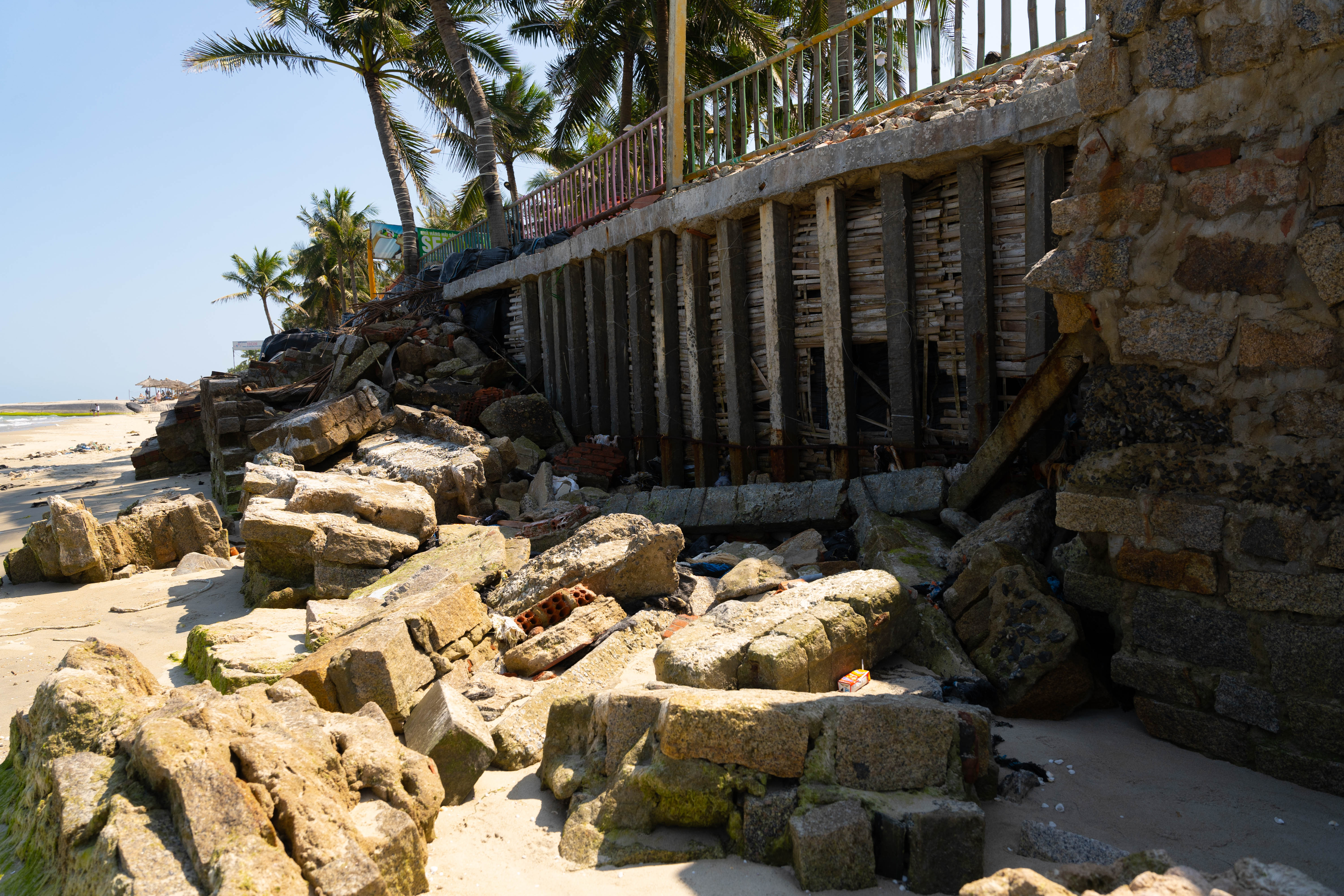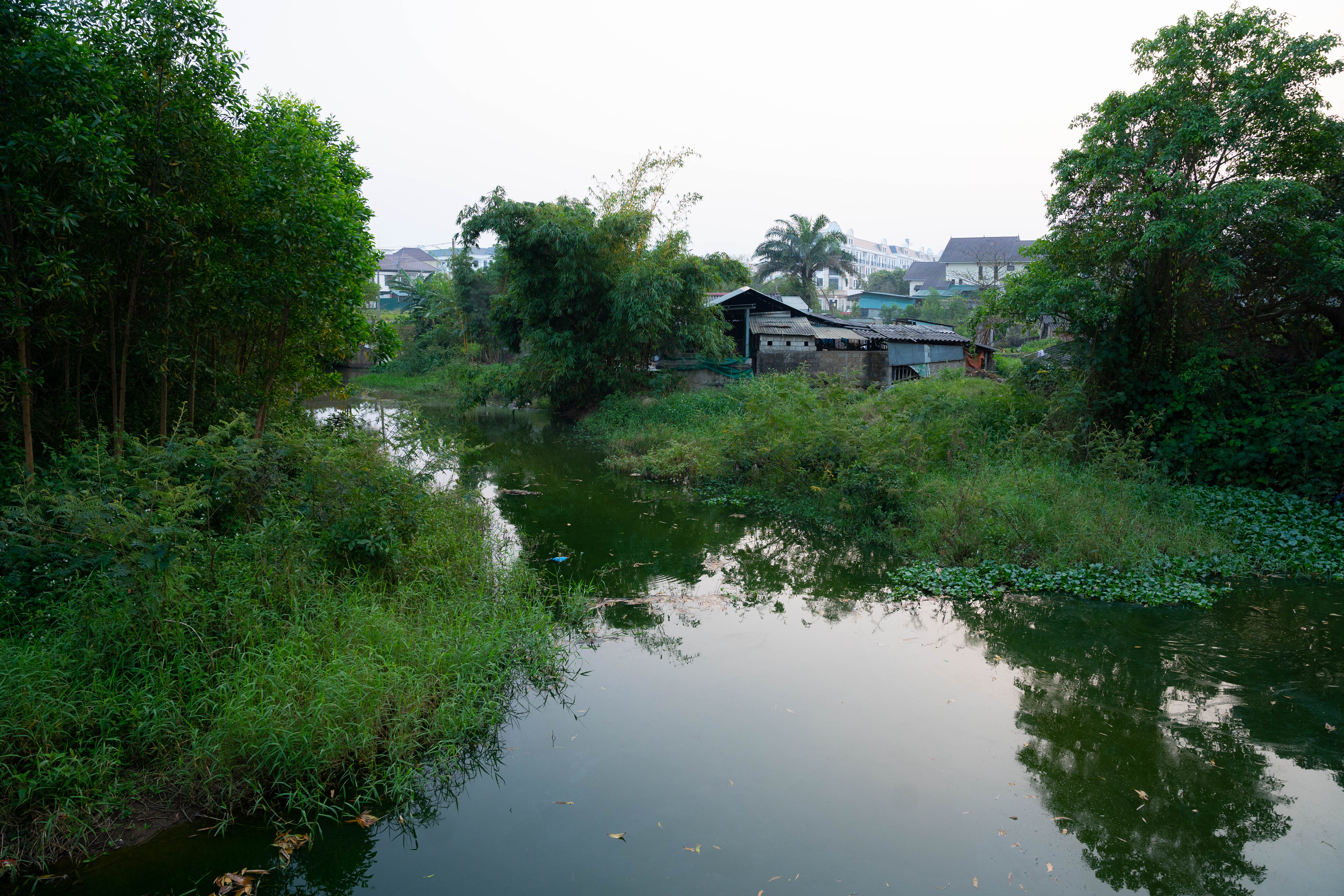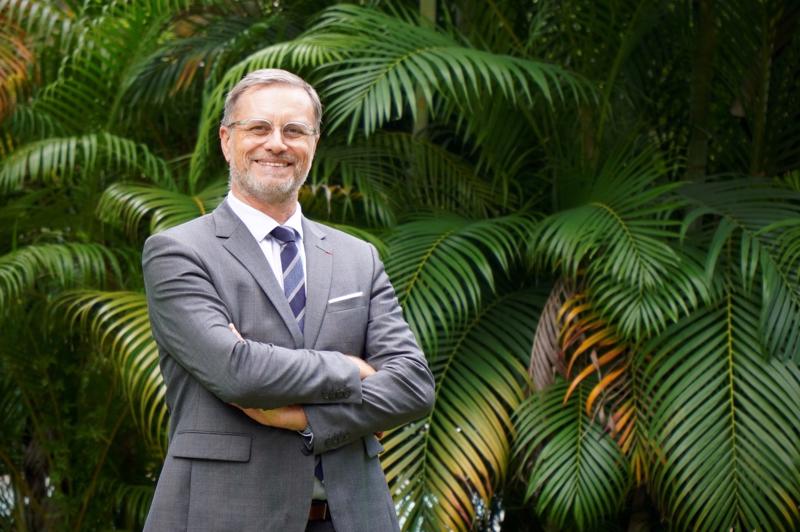THE GLOBAL CHALLENGE OF CLIMATE CHANGE
Your Excellency, the challenges posed by climate change are felt globally, with rising temperatures and sea levels posing significant risks. How do you see these global trends affecting Vietnam, a country with a vast coastline and highly populated coastal areas?
Vietnam is, unfortunately, one of the nations most vulnerable to climate change globally. The rising sea levels you mention pose a direct threat to coastal communities, critical infrastructure, and the fertile Mekong Delta – a vital agricultural region highlighted in the Mekong Emergency report issued in 2022 by GEMMES program developed by French Development Agency (AFD) .
Climate change also contributes to the intensification of extreme weather events like typhoons and floods, which cause severe damage and loss of life. The increasing frequency and severity of droughts are also impacting agriculture, particularly in the Central Highlands. These are tangible threats with far-reaching consequences for Vietnam's economic development and the well-being of its people.
Climate change is a global challenge, requiring a coordinated international response. How can international cooperation be most effective in addressing climate change in Vietnam? Are there specific existing initiatives or partnerships that demonstrate the value of this collaborative approach?
France strongly believes that collaboration is the key to effectively addressing climate change. The Paris Agreement in 2015 is a testament to the power of nations coming together for a common cause. There are numerous examples of cooperation specifically addressing Vietnam's challenges.
The Just Energy Transition Partnership is a major initiative involving France and G7 partners to accelerate the shift towards clean energy sources in Vietnam. Additionally, AFD to finance projects focused on climate resilience, such as the coastal protection initiatives in Quang Nam, are tangible demonstrations of cooperation yielding positive results.

Building on the idea of cooperation, what role do you believe diplomacy plays in creating international frameworks and galvanizing action on climate change?
Diplomacy is absolutely crucial. It creates the spaces for dialogue and builds bridges of understanding necessary for nations to find common ground. Climate diplomacy is about identifying areas of mutual interest, ensuring a fair distribution of effort towards mitigation goals, and facilitating the sharing of knowledge and technology.
It's about forging a global approach that respects the specific needs and development challenges of countries like Vietnam while pushing the world urgently towards a lower carbon future.
Adopted in 2023 and endorsed by more than 50 States including Vietnam, the 'Paris Pact for People and the Planet' reminds us that we cannot oppose the fight against climate change and the fight against poverty
FRANCE AND VIETNAM: A SHARED VISION FOR THE ENVIRONMENT
Your Excellency, France and Vietnam have a rich tradition of scientific collaboration, particularly regarding environmental issues. Could you elaborate on the current work being done by research institutions like the IRD, CIRAD, and CNRS in Vietnam, and the specific environmental challenges these collaborations are addressing?
You're absolutely right about the longstanding partnership between France and Vietnam in scientific research. Our institutions like the IRD, CIRAD, and CNRS work in close collaboration with Vietnamese counterparts to understand and tackle a range of environmental issues.
The IRD, for instance, conducts vital research on oceanography, water resource management, and the impact of climate change on biodiversity. CIRAD's expertise is focused on developing agroecological practices to improve agricultural sustainability, food safety, and combatting emerging animal diseases.
Additionally, French institutions are deeply involved in research on renewable energies, pollution control, and urban planning that promotes climate resilience.
You highlighted France's involvement in the Just Energy Transition Partnership (JETP) with Vietnam. Could you share some insights into how this partnership is structured, its key objectives, and the expected timeline for achieving its goals related to clean energy development in Vietnam?

The JETP is a truly innovative and ambitious partnership. It brings together France, other G7 nations, and international financial institutions to mobilize USD 15.5 billion of public and private investment to support Vietnam's transition away from coal-fired power and towards renewable sources of energy.
The key objectives are to increase the share of renewables in Vietnam's energy mix, accelerate the deployment of solar and wind power, improve grid infrastructure, and ensure a just transition for workers and communities affected by the shift away from coal.
The timeline is ambitious, aiming for significant progress within the next 5-10 years and establishing Vietnam as a leader in clean energy in Southeast Asia.
France through AFD contributes to this initiative with 525 million USD, deployable quickly to support EVN investment program under PDP8, in particular, the strengthening of the grid and the development of energy storage, both necessary conditions to deploy new renewable capacities.
French companies are also working with Vietnamese partners to provide solutions and invest in new renewable capacities in Vietnam.
Beyond specific projects, how does this deep scientific cooperation foster a broader shared vision between France and Vietnam on environmental protection and sustainable development, and how do you see this partnership evolving in the future?
Collaborations like these create a foundation of shared knowledge, mutual trust, and technological innovation that are essential for building a sustainable future.
France and Vietnam strongly believe that economic development must be decoupled from environmental degradation. By working together, we can identify solutions that promote economic growth while safeguarding natural resources, mitigating climate change, and improving the quality of life for our citizens.
Moving forward, I envision even greater levels of cooperation, particularly in developing green technologies, exchanging expertise on biodiversity conservation, and implementing circular economy principles.
FINANCIAL SUPPORT FOR CLIMATE ACTION
Your Excellency, you mentioned the recent agreement between the French Development Agency (AFD) and Vietnam to provide significant financial support for climate adaptation projects in Quang Nam and Quang Tri provinces. Can you tell us more about the specific aims of these coastal protection and urban development initiatives?
These projects are designed to build resilience in two highly vulnerable coastal provinces. In Quang Nam, the focus is on protecting Hoi An – a UNESCO World Heritage Site – from erosion and the impacts of sea-level rise.
This will involve reinforcing the coastline, developing natural based solutions, sand refill of the beach, , reviewing city planning along the coast and enhancing community preparedness for severe weather events. In Quang Tri, specifically in Dong Ha city, the project aims to promote green urban development.
This includes improved infrastructure for flood management, the establishment of green spaces, and strategies for sustainable urban planning that take climate resilience into account.
What kind of tangible benefits do you anticipate these projects will bring to the people living in these coastal communities?
The impacts will be multifaceted. Firstly, these projects will safeguard homes, livelihoods, tourism activities and critical infrastructure from the destructive forces of erosion and flooding.
This increased security will allow communities to focus on development and economic growth. Ultimately, these projects contribute to greater quality of life and well-being for the people of Quang Nam and Quang Tri, ensuring they can thrive in the face of climate change.
Are there plans to expand this type of cooperation with AFD or other French agencies to support climate action projects in other regions of Vietnam?
Absolutely! France is committed to standing alongside Vietnam as it navigates the realities of climate change. We recognize that adaptation needs extend across the country.
We are actively in a Team Europe approach with the European WARM Facility, developing projects in close relation with provincial authorities to support initiatives in other vulnerable areas, such as in Ca Mau, Hau Giang and Vinh Long in the Mekong Delta.
The success of these initial projects in Quang Nam and Quang Tri in addition to the on-going work in Dien Bien and in 4 North Central provinces will be crucial in demonstrating the effectiveness of our partnership, paving the way for potential future collaborations that benefit the entire nation.
SCIENCE, EDUCATION, AND SHAPING THE FUTURE
France and Vietnam have established robust partnerships in higher education, with institutions like the USTH and numerous exchange programs. How do you see these collaborations equipping young Vietnamese students to tackle environmental challenges and become champions of sustainability?
These educational partnerships are an investment in the future. By providing Vietnamese students with access to world-class scientific training, we empower them to become catalysts for positive change.
Programs focused on environmental science, renewable energy, sustainable agriculture, and related disciplines directly equip students with the knowledge and skills to create a more sustainable world.
Additionally, the cultural exchange fostered by these partnerships promotes a global perspective, an understanding of interconnectedness, and a collaborative spirit – all essential for tackling a global challenge like climate change.
A MESSAGE OF HOPE AND COLLABORATION
Your Excellency, the challenges of climate change and environmental degradation can sometimes feel overwhelming. What gives you hope for the future, and what do you believe is the most important factor in overcoming these challenges and creating a sustainable world?
The unwavering commitment and innovation of young people around the world give me immense hope. Their energy, passion, and refusal to accept the status quo are driving incredible progress and demanding change from those in power.
They are also ready to adopt more responsible behaviours towards our planet and our environment, understanding that their generations might pay the price of our mistakes. At the same time, scientific research continues to push the boundaries of our understanding, providing us with vital tools and solutions.
Most importantly, I believe collaboration is our greatest asset. When nations, businesses, researchers, and communities come together with a shared purpose, we have the power to transform our world.
As a final message to the readers of Vietnam Economic Times, what would you say is the key to building a sustainable future and why is cooperation between France, Vietnam, and the broader global community so vital?
Addressing complex problems like climate change requires us to think and act both locally and globally. Every nation, every business, and every individual has a role to play in reducing emissions, protecting our natural environment, and embracing sustainable practices.
France and Vietnam are united in this vision, and our ongoing partnerships exemplify the power of working together across borders. By sharing knowledge, technology, and resources, we accelerate progress and build a more resilient world.
International collaboration isn't just an option; it's a necessity for solving the crisis of our time and ensuring a brighter future for generations to come.









 Google translate
Google translate